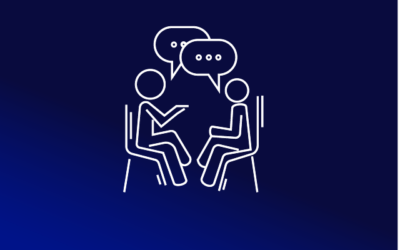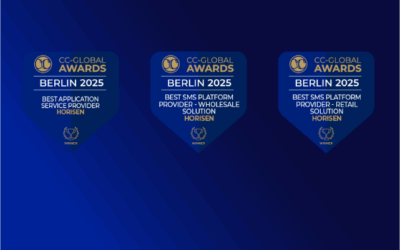Short vs. Long Codes – differences
Almost all mobile phones, regardless of type or ‘smartness’, have one thing in common – SMS. Some estimates say that there are more than 4.5 billion SMS enabled devices in the world today, which makes texting a valuable communication channel among people.
Other stats also say that 98% of SMS messages are opened and read within 3 minutes of receipt, a much higher rate than it is the case with emails, especially emails used in marketing purposes. To make it clear, the percentage of emails which get opened is just 22% (in average), which proves that SMS marketing has a much better performance than email marketing.
The primary use of SMS today is a personal communication, polling, contests, voting and business mobile marketing and communication with clients via SMS.

From sending appointment reminders to tailored marketing messages, SMS marketing is an extremely effective channel.
Texting is also one of the fastest and most reliable means of communication.
The average time needed to send and receive SMS is just 5 seconds!
This makes SMS one of, if not the most direct channel available to connect with other people (audience/clients). Hence, many businesses and top brands have added SMS messaging to the heart of their marketing efforts. To illustrate this with one interesting fact: it has been reported that Coca-Cola has invested 70% of their total mobile budget in SMS marketing!
Now we’re getting to the point where you can ask what would be a good way to realise SMS marketing, especially if your brand or business has a lot of clients and users willing to receive regular updates or/and communicate with you directly. And your brand wants to remain recognisable and build a positive brand reputation among clients. The answer is premium rated SMS.
Premium services are those that add premium value to basic services (price is different from the standard price of SMS; the mobile phone user is charged an additional amount for using this service). The Premium SMS service uses shortcodes for sending messages, for example, when buying a product or service or participating in SMS voting. The Premium SMS service is an excellent tool for companies to generate revenue by charging mobile phone users for services (mobile payment, contest, voting, donations, etc.).
Shortcodes, or two-way numbers, are supported by Bulk SMS service, and they enable businesses to collect additional revenue by selling information required by clients. Customers are paying to use this service when they want to:
- Participate in a contest
- Participate in winning games and auctions
- Pay for website access
- Buy online content
- Vote for their favourite candidate in a show or competition (TV/radio programs mostly)
- Subscribe to receiving specific content from the provider
- Reach customer support
- Use SMS chat service
- Opt-in or opt-out of SMS updates
- These services are best realised by using shortcodes.
Shortcodes are easy-to-remember, human-friendly numbers, usually 3 to 7 digits in length, used to send and receive SMS messages.
Shortcodes are always provided by the operator. They can either be a specific SC or a random generated one – specific SC is, of course, more expensive. The main advantage from using shortcodes is that they enable you to send large quantities of messages to a broad audience quickly.
Shortcodes have default messaging throughput of 40 SMS per second, which is ideal for all businesses that are sending automated messages. This service is permission-based since clients must opt-in and agree to be sent these type of information. This was defined by consumer protection regulations put in place by the Telephone Consumer Act (TCPA) that requests companies launching marketing campaigns via SMS to first ask permission from consumers and provide value in exchange. This helps in protecting a customer while empowering you to carry successful SMS marketing campaigns.
So, this type of communication will never be misinterpreted as spam.
Also, SMS shortcodes allow you to customise clients’ replies (keywords) – for example: reply YES to confirm to 1234 or reply STOP to cancel to 1234.
Shortcodes build more professional user experience among clients since these numbers are recognisable, easy to remember and help brands build a positive reputation. In the same time, businesses can use this service to connect with partners, suppliers or their employees, enabling them to easily reply to SMS messages.
But, shortcodes are best to use for different marketing campaigns and promotions, when you want people easily to remember your number or if you want to encourage conversation between you and your clients.
Shortcodes are obtained either through a specialist company or a telecommunication service provider. These numbers can be expansive to buy and can take some time to be set up. But, benefits from using shortcodes are significant, so any serious business that wants to communicate with its clients or run a marketing or entertaining campaigns should decide to use this type of messaging service.
Also, shortcodes are great for A2P (application-to-person) SMS that is also known as enterprise or professional SMS. This type of communication comes from a business application and not an individual’s mobile phone. Shortcodes can only be used nationally, for home subscribers.
On the other hand, long codes, as the name implies, are long phone numbers, usually just like a standard telephone number. They are also called inbound services, and they are global reply services due to the fact they enable receiving replies from local and international destinations.
Long codes are an excellent choice if a company wants to reach clients internationally. They are much cheaper than shortcodes, so if you need to receive replies from your messages but is not as important that people easily remember your number, then long codes are the most cost-effective solution for you.
These numbers are used for P2P (person-to-person) SMS communication that allows a person to interact with another person, e.g. Google Voice. Also, long codes can be used for chat apps as well. Long codes are cheaper, but they are much slower than shortcodes. Only 1 message per second per long number can be delivered through this service. Therefore, businesses who execute SMS marketing campaigns regularly don’t use long codes for their marketing activities.
So, which service is better?
Both.
Because what’s best depends on what you want to achieve.
If you want to experience SMS marketing in its best form, try HORISEN SMS Platform.





